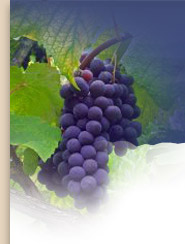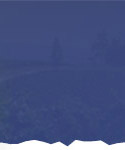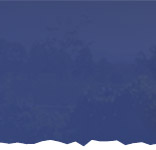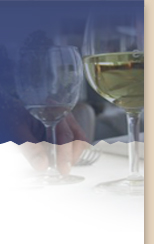Thoughts on Wine from America's Elder Statesmen
When it comes to the consumption of alcohol, the United States of America has a reputation for being on the one hand very puritanical or on the other hand great drinkers of bourbon or beer. Wine consumption is low at approximately 8 litres per adult annually. This low figure is not due to lack of trying to encourage wine consumption in the past though.
The three elder statesmen in the period of America's foundation and independence were all great advocates of the use of wine – George Washington (1732-1799) was the General of the Revolutionary Army and the United States of America's first President, Benjamin Franklin (1706-1790) was a famous author and scientist as well as America's spokesman in France and finally Thomas Jefferson (1743-1826), one of the most intelligent men of his time, philosopher, author, author of the Declaration of Independence and third President of the United States of America. Jefferson was also the greatest wine authority of his time and formally began the wine cellar in the White House.
The following are some of their thoughts on wine...
George Washington grew up a Virginia landowner and eventually forced the commander of the English forces, Lord Cornwallis to surrender at Yorktown. His stature, reputation and integrity were such that he was elected President of the World's first modern republic with little opposition. He was president from 1789 until 1797.
"My manner of living is plain and I do not mean to be put out of it. A glass of wine and a bit of mutton are always ready". – Washington
Benjamin Franklin was one of the greatest Americans as a statesman, scientist and writer which is surprising as he was born the tenth of 17 children in Boston, Massachuesetts and only had two years at school. He became a printer and later in Pennsylvania started a subscription library, a debating society, a fire service, a street cleaning department and the University of Pennsylvania. He also proved that lightning was a discharge of electricity and invented the lightning conductor. In 1776 when the American colonists decided to free themselves from British rule, he helped draw up the Declaration of Independence and was one of its signatories. A year later he was sent to France to ask them to help the American colonist's war of independence, which they did. After the war had been won by the American colonists, Benjamin Franklin became a member of the Constitutional Convention.
"Wine makes daily living easier, less hurried, with fewer tensions and more tolerance". – Franklin
"We hear of the conversion of water into wine at the marriage, in Cana, as a miracle. But this conversion is, through the goodness of God, made every day before our eyes. Behold the rain, which descends from Heaven upon our vineyards, there it enters the roots of the vine to be charged into wine; a constant proof that God loves us and loves to see us happy. The miracle in question was only performed to hasten the operation, under circumstances of necessity, which required it". – Franklin
Thomas Jefferson was born in Virginia, the son of a wealthy planter and community leader. When his father died, Jefferson inherited a considerable plantation where he designed his beautiful home Monticello. After a good classical education he started practicing law at 24 and became a successful lawyer, which led him eventually into politics and the American Revolution. From being a member of the Virginia House of Burgesses, Jefferson moved to the Continental Congress where he became Chairman of the Committee selected to write the Declaration of Independence which was adopted by Congress on 4/7/1776. Jefferson was also elected Governor of Virginia in 1779 but between 1784 and 1789 he was in Europe making trade agreements and in 1790 President Washington made him Secretary of State. It was during this period in Europe that Jefferson made his Grand Tour of the vineyards of France, Italy, Germany, Spain and Portugal. He had always enjoyed wine and been an advocate for its use as a medicine, but this tour would have been the highlight of his wine loving career.
After a period of retirement Jefferson returned to politics, eventually becoming President, serving two terms from 1801-1809. During his first term Jefferson was responsible for the significant purchase of Louisiana from the French in 1803. Jefferson's term as President saw the pomp and ceremony of the previous Presidents Washington and Adams end. "You drink as you please and converse at your ease" one senator described a Jefferson evening. As Jefferson put it "The principle with us, as well as our political constitution is the equal rights of all, and if there be an occasion where this equality ought to prevail pre-eminently, it is in social circles collected for conviviality. Nobody shall be above you, nor you above anybody, pele mele is our law". Dinner conversations centred around Jefferson's great passions: gardening, architecture, wine and his time in Europe.
Washington was starved of social outlets so the President's dinners took preference over everything and Jefferson rarely dined alone, so to cater for these numerous dinners he established a wine cellar in the President's House (today's White House). During the eight years of his Presidency, records show that over 20,000 bottles of wine from European countries had been purchased.
After his Presidency, Jefferson retired to his beloved Monticello to write, look after his plantations and establish the University of Virginia.
"Good wine is a necessity of life for me". – Jefferson
"We could, in the United States, make as great a variety of wines as are made in Europe, not exactly of the same kinds, but doubtless as good". – Jefferson
"I have lived temperately. I double the doctor's recommendation of a glass and a half of wine a day and even treble it with a friend; but halve its effects by drinking the weak wines only". – Jefferson
Jefferson was not only interested in wine as such, but also in grape growing. In 1809 Jefferson wrote about the Alexander grape vines in his garden thus: - "it will be well to push the culture of this grape without losing time and efforts in the search of foreign vines which it will take centuries to adapt to our soil and climate".
The red Alexander grape was the first domesticated native American wine grape, which was introduced into the eastern states before the Revolution thus beginning commercial grape growing in America. It was named after James Alexander, the gardener to Thomas Penn, the son of Will Penn, who founded Philadelphia. Alexander had found it growing wild near Philadelphia and planted it in Penn's garden.
Jefferson's advice was followed with vineyards in Pennsylvania, Ohio and Indiana planted to the Alexander grape in the early 1800's. Later Jefferson commented "In making this vine known, I have rendered a great service".
"I rejoice as a moralist, at the prospect of a reduction of the duties on wine by our national legislature. No nation is drunken where wine is cheap, and none sober, where the dearness of wine substitutes ardent spirits as the common beverage...... Fix but the duty...... and we can drink wine here as cheap as we do grog and who will not prefer it? Its extended use will carry health and comfort to a much enlarged circle". – Jefferson
"I think it is a great error to consider a heavy tax on wines as a tax on luxury. On the contrary, it is a tax on the health of our citizens". – Jefferson
"I find friendship to be like wine, raw when new, ripened with age, the true old man's milk and restorative cordial". - Thomas Jefferson
"When Jefferson's two daughters developed typhoid fever, he disdained the treatment with blood letting and cathartics and placed them under the care of an English physician who used neither. This physician used soft foods of high caloric content and Madeira wine every two hours. Jefferson later related how he cured his 10 year old daughter, Polly, with Madeira wine when she later became ill. He also claimed that the same treatment saved the lives of several members of his family, 20 to 30 of his neighbours and friends, "without losing a single one" - excellent results for the time". Jock Murray "Thomas Jefferson and medicine". Journal of Medical Biography Vol. 5 No.3 August 1997.
Jefferson's goal all the time, along with later statesmen such as California's winegrowing senators, Leland Stanford and George Hearst, was to educate and wean the American public off whiskey and gin and onto sound table wines drunk daily with good food, thus making America a healthier and predominantly wine drinking country like France or Italy.
In 1861 Mrs. Abraham Lincoln started the practice of serving American made wines at the White House, to compliment the imported European wines, because it was thought they were of good enough standard.
Abraham Lincoln was the sixteenth President of the United States of America, serving from 1861 to 1865 when he was assassinated five days after winning the Civil War.
Lincoln is famous for saying "Tell the people the truth and the country will be free". In this book I am trying to tell the truth about the health benefits of consuming wine in moderation daily.
Lincoln further stated about alcohol - "It is true that even then it was known and acknowledged that many were greatly injured by it (alcohol). But none seemed to think the injury arose from the use of a bad thing, but from the abuse of a very good thing".
Wine in moderation is good for you; but not when it is abused. So enjoy wine in moderation daily for your health and happiness.
Dr Philip NORRIE
MBBS,MA,MSc,MSocSc[Hons],PhD,MD, currently doing M.Phil

























